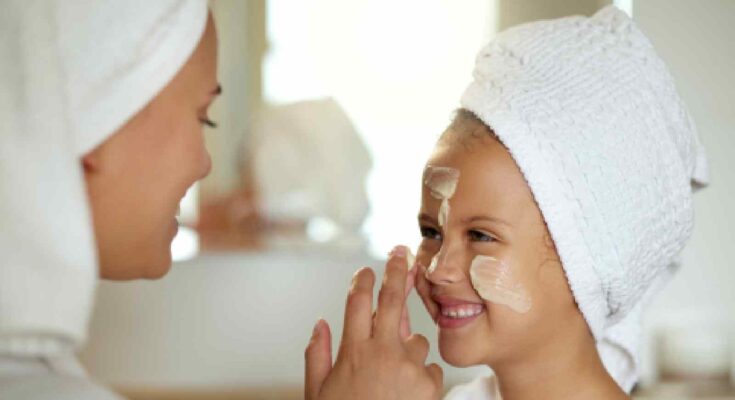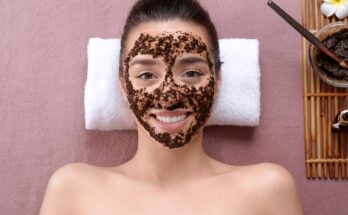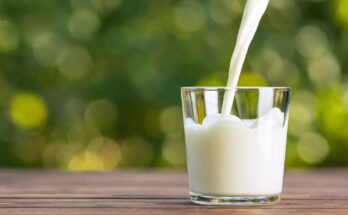Babies grow up too fast! As they age, you should even change the skin care products you use for them. Beyond a point, you will need more than what baby care products can offer to your little one. With age, your daughter’s skin will go through different changes. Read on to know the right age to stop baby care products for your child.
HealthShots consulted Dr Jaishree Sharad, a popular cosmetic dermatologist, author, TEDx speaker and founder of Skinfiniti Aesthetic Skin and Laser Clinic in Mumbai, to find out when to stop using baby care products and move on to adult skin care and hair care products.

What’s the right age for girls to use adult skin care and hair care products?
A newborn’s skin is sensitive, so skin care products are also different (skin care tips for newborn babies). Once your daughter attains puberty, her skin will change. That is when she could start using adult skin care and hair care products, says Dr Sharad. But she notes that there is no particular age. A skin care routine depends on skin type, climate and hormones, and it changes every decade. A girl in early or late teens does not need adult skin care which is meant to prevent free radical damage due to the following factors:
• Stress
• Smoking
• Alcohol consumption
• Excessive sun exposure
• Exposure to pollution
• Unhealthy lifestyle
• Unhealthy eating habits.
Although girls can use adult skin care, they should restrict themselves to using minimal products, such as cleansing, moisturising and applying a sunscreen (guide to find the perfect sunscreen) in the morning. At bedtime, they should remove make-up, apply an anti-acne cream if they have acne and use a moisturiser. Active serums are not needed at an early age.
What will happen if girls continue to use baby care products after becoming teenagers?
The good news is that if teenagers continue to use baby products, it would not harm the skin or hair. However, they may need products according to their skin type. During teenage years, the skin tends to get oilier because of hormonal changes in the body. So, foam-based face washes or face washes that contain salicylic acid or grape seed extract or tea tree oil or glycolic acid to help deep cleanse the skin and unclog the pores can be used. If they have dry or sensitive skin, they can continue to use baby products.
Reason to change skin and hair care products as girls grow older
We are all aware that baby products are mild. The expert says that a baby sunscreen may not give complete protection against UVA and UVB . Similarly, a baby shampoo, though not harsh, may not cleanse the hair and scalp thoroughly. If your daughter uses a baby shampoo, you may have to lather up three to four times to actually get rid of the oil, grime, dust, dead skin and sweat salts. When your child attains puberty, their skin also undergoes changes due to the changes in the hormones. In some, the sebaceous glands become hyperactive and the skin gets oilier and acne prone (ways to treat acne). Also with age, the skin barrier layer is more robust and can tolerate stronger products. As for tresses, the hair texture improves. Exposure to pollution, sun, unhealthy diet and sleeping late can all affect the quality of the hair. So, baby care products will not work on a grown up girl.

Avoid using anti-ageing products for teenagers
It’s true that skin care that you use at 20, can be used at 18 or 19 too if the skin demands. For example, retinols are prescribed by dermatologists to teenagers for the treatment of acne. However, it is advisable to start retinoids for anti-ageing in late twenties. Hydroquinone should not be used in those below 20. It is a bleaching agent and over use can lead to sensitive skin and a condition called ochronosis. Peptides, resveratrol and marine algae extracts are not required in the age group below 20. When the collagen is firm and intact, there is no need to boost fibroblasts which are collagen forming cells. So, don’t let your teen use any of your anti-ageing products. Also, avoid hair styling products below the age of 20. They could make the hair more brittle, dry and lacklustre!
Source link




